Channel 24's Controversial Report on Awami League Expatriate Government
On Monday, October 21, a special report was aired on Bangladesh's news-based Channel 24, with the headline, "The Ousted Awami League is Plotting to Form an Expatriate Government in India." However, just five hours later, the report was removed from both the channel’s Facebook page and YouTube. The video has since been made private, but the full news bulletin is still available to view in the live broadcast.
Upon viewing the report, several questions immediately arise. What evidence did the reporter use to substantiate the claim? Whose interviews or statements were aired?
The face of the person in question was not visible. A man wearing a large black mask was introduced as "Sheikh Rubel," a member of the Sheikh family. But who is he? What does journalistic ethics and grammar dictate in this case? Let’s examine.
Who is this man? The reporter himself did not confirm the identity of the individual. Historically, leaders of banned terrorist groups like Al-Qaeda or Hezbollah have delivered video messages wearing such black masks, where revealing their faces would have posed a problem. However, the Awami League has not yet been banned, nor has it been internationally labeled a terrorist group. Yet, Channel 24’s senior reporter, Junaid Shahriar, presented the person as Sheikh Rubel, voiced his claims, but left the face hidden behind the mask.
Even if Sheikh Rubel is somehow a cousin or relative of the Sheikh family, what is the relevance of his statements? Is he someone from the former government’s or Awami League’s policymakers? It’s hard to believe that a news-based channel like Channel 24 cannot distinguish between a report and a story. In the past, this channel has aired numerous breaking and scoop news stories that exposed the controversial actions of the previous government and law enforcement agencies to the public.
In such a tumultuous political climate, how was such a report aired without any verification? Channel 24 has not provided any explanation for this. However, the reporter informed his colleagues that the individual who provided the statement was not actually Sheikh Rubel, something he discovered later.
The biggest question remains: Would India accept any Bangladeshi political party forming an expatriate government on its soil? The reporter, Junaid Shahriar, made no effort to get any comment from the Indian government on this claim.
Five hours later, without any explanation or apology, the channel authorities retracted the news. Although no official statement has been released, discussions with the newsroom revealed that the person who gave the statement was not Sheikh Rubel.
But the issue doesn’t end there. The news stirred up a storm in political circles, provoking intense reactions from both the ousted Awami League and opposition groups.
Notably, on the same day the report was aired, tension flared in Bangladesh’s border district of Comilla. Rumors circulated on social media that the Awami League was preparing to declare an expatriate government in Agartala, the capital of India’s Tripura state. Coordinators of the Anti-Discrimination Student Movement also claimed that former Prime Minister Sheikh Hasina herself might attend the assembly and deliver a speech, according to their sources.
However, central leaders of the Awami League have denied the rumors, claiming there is no truth to the news of the assembly, the formation of an expatriate government, or Sheikh Hasina’s presence. Conversations with several top leaders also revealed no credibility to the claims. The Indian government has also dismissed the rumors, stating there is no basis to these allegations. Moreover, no officials from the interim government have commented on this matter.
Leaders of the Anti-Discrimination Student Movement claim that some Awami leaders from the Comilla, Noakhali, Laxmipur, and Feni regions who are still in Bangladesh were the ones planning the assembly. Once word of Awami League’s activities in Tripura spread, the Anti-Discrimination Student Movement declared their intention to resist such actions.
The Anti-Discrimination Student Movement in Comilla organized a torchlight march on Saturday night at around 8:30 PM from the town hall grounds. The march was led by the movement’s central coordinators, Hasnat Abdullah and Abdul Hannan Masud.
When asked where they obtained such information, Abdul Hannan Masud, one of the coordinators of the Anti-Discrimination Student Movement, told BBC Bangla, "We learned this through our own connections."
At this point, simply questioning reporter Junaid’s source and intent is not enough. It is also valid to question the intentions and gatekeeping practices of the senior figures at such a top news channel. After all, using the media to create instability and exploit a chaotic situation is not new in Bangladesh or the world. Moreover, financial dealings and other unethical practices have often been linked to such actions.
It is worth mentioning that this reporter, Junaid Shahriar, aired a virtual interview with Sheikh Hasina’s son, Sajeeb Wazed Joy, on August 9, after Sheikh Hasina and Awami League ministers fled power on August 5. However, allegations suggest that the interview was neither conducted nor recorded by Junaid but instead obtained through Ashraful Alam Khokon, the former Deputy Press Secretary to the Prime Minister, who had been dismissed on corruption charges.
-
Previous Post
Somoy TV Becomes the 'Mexico Route'
-
Next Post
Threats of Murder Alleged After Posting Against Shakib
You May Also Like
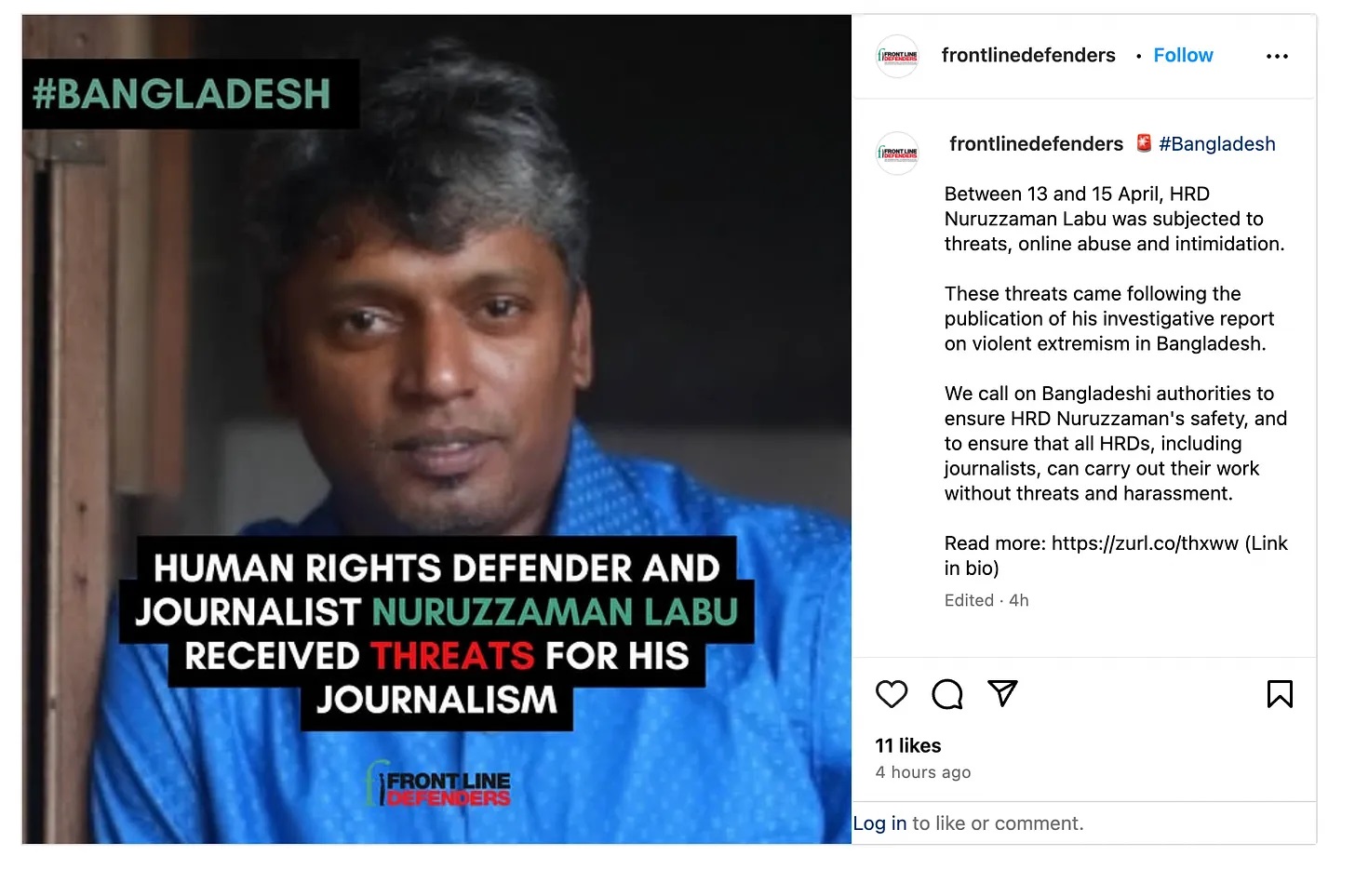
Is It Justified to Call Nuruzzaman Labu a Human Rights Defender?
While threats against journalists must never be taken lightly, FLD’s decision to categorize Labu as a 'human rights defender' raises legitimate concerns about due diligence and the risk of diluting this critical designation.
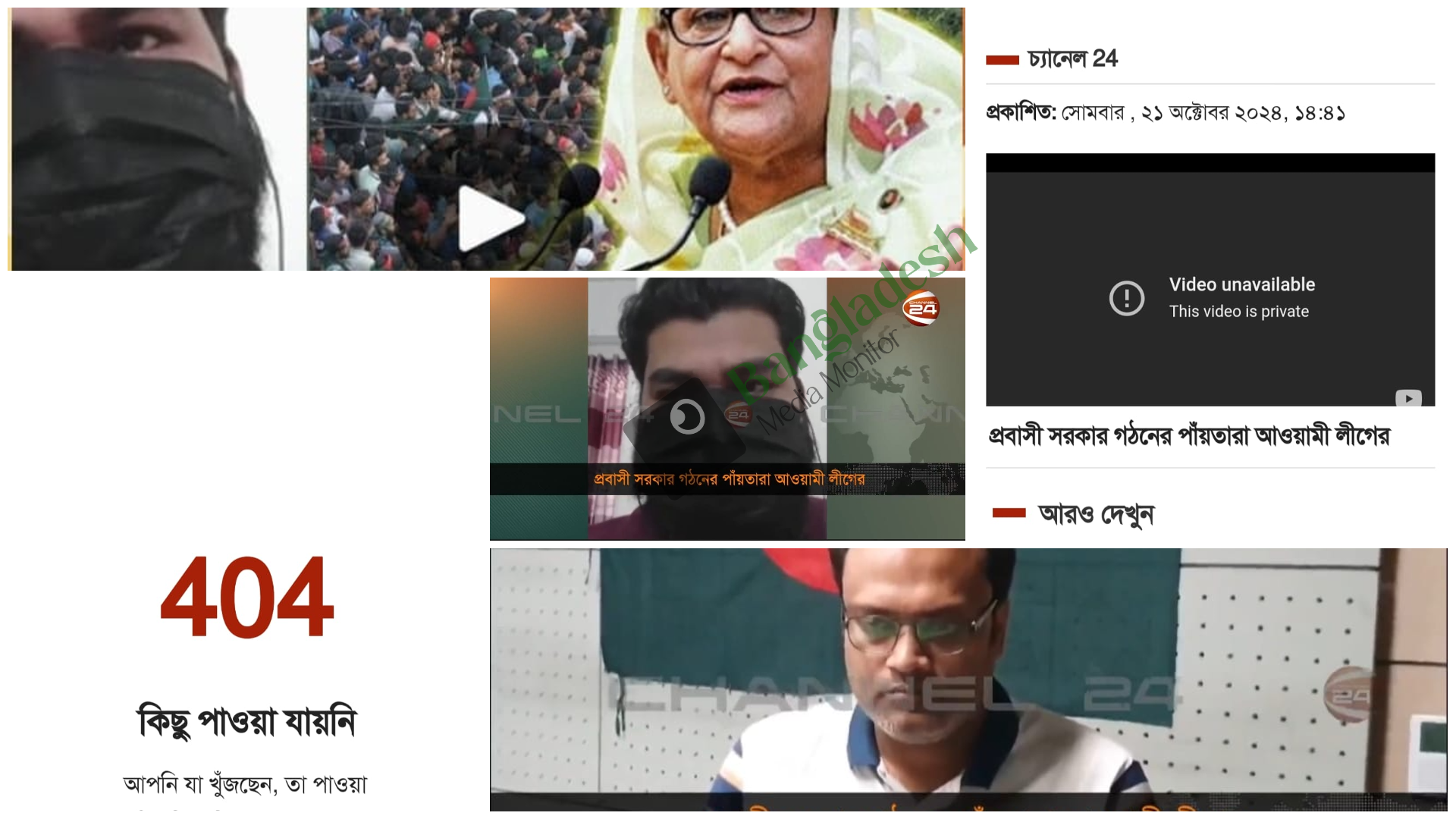
Channel 24's Controversial Report on Awami League Expatriate Government
Upon viewing the report, several questions immediately arise. What evidence did the reporter use to substantiate the claim? Whose interviews or statements were aired?

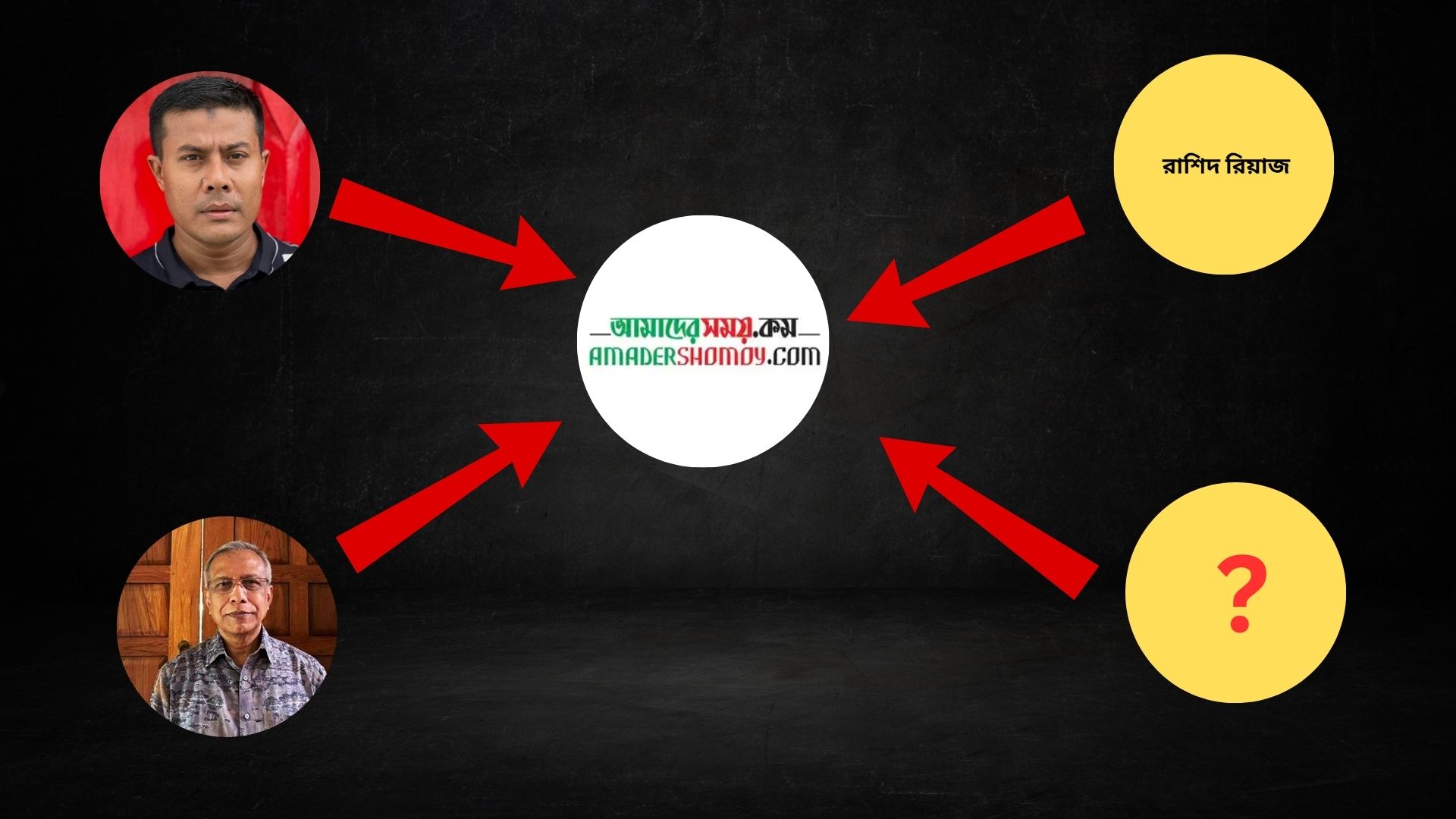

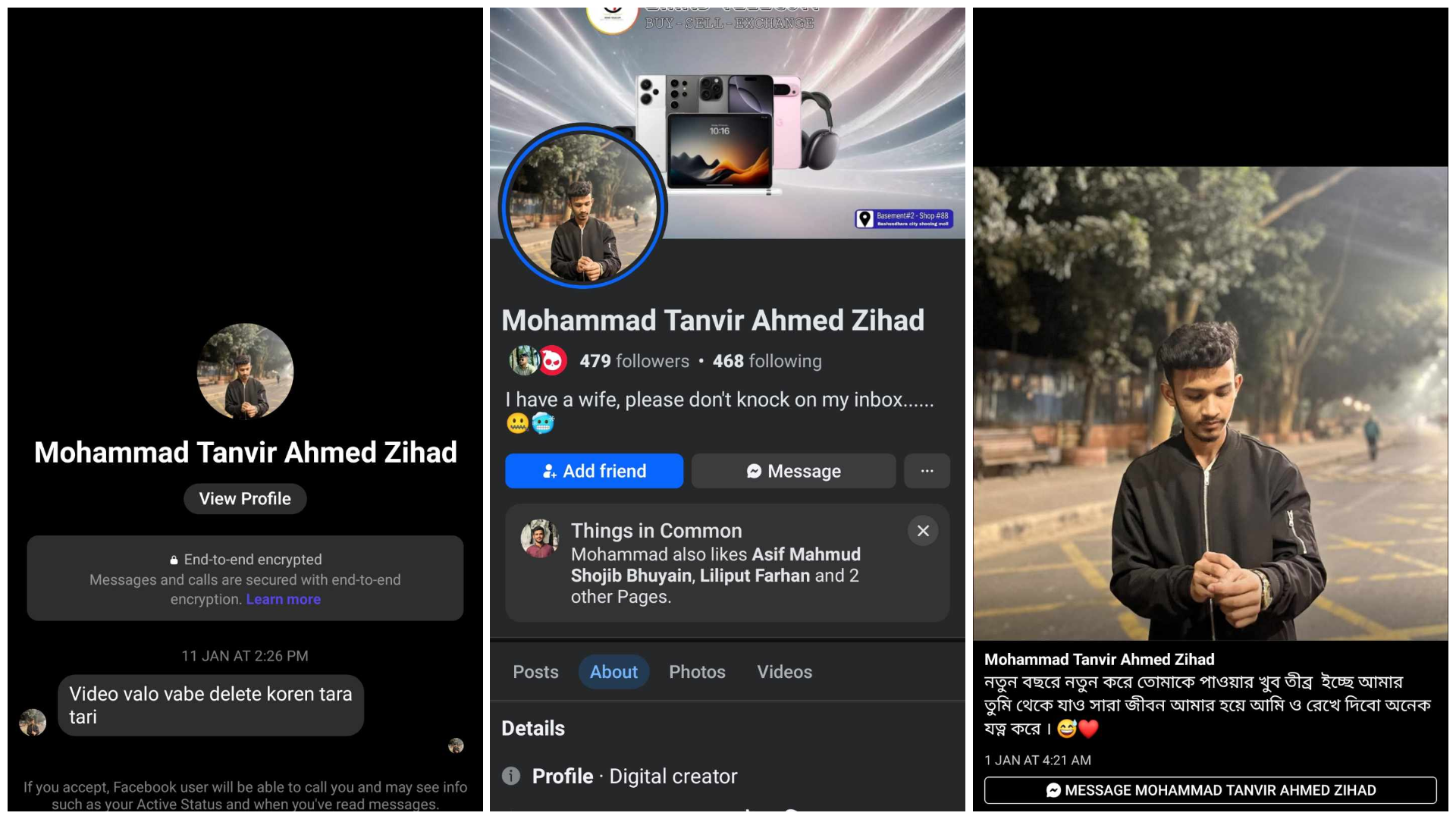
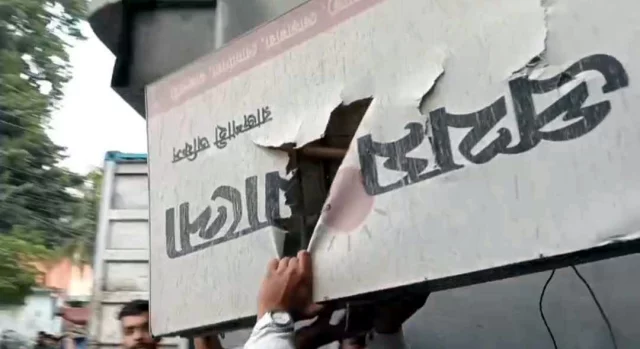

Two Comments